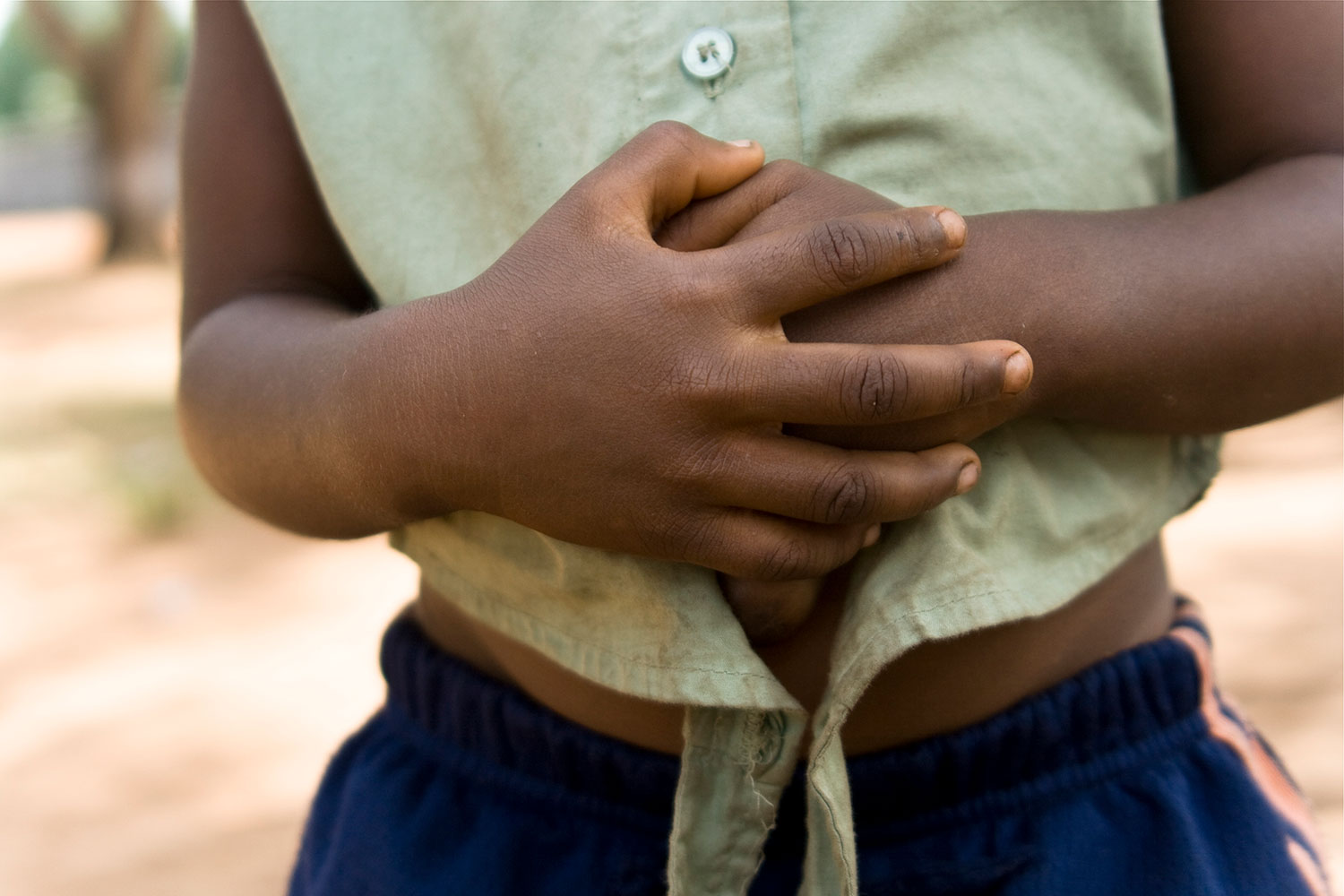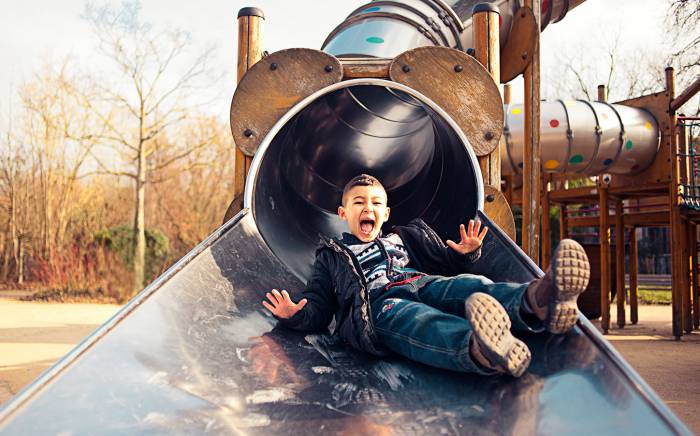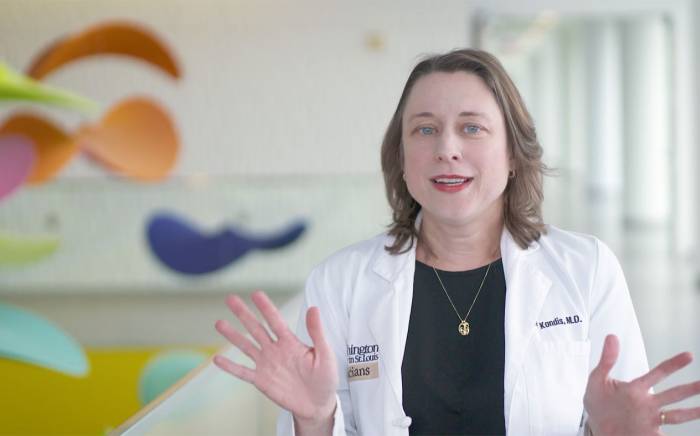
April 26, 2024, 10:30 a.m.
Jamie Kondis, MD
Diarrhea — defined as loose, watery and more frequent bowel movements — is a symptom of illness in young children, which can often be concerning to parents. It’s extremely common, with children younger than 4 years usually having diarrhea one or two times each year.
Diarrhea can range from mild to severe. If your child has mild diarrhea without vomiting that goes away after one or two days, you likely do not need to change anything about their diet, and giving them medications is not recommended. You can continue giving them regular food, milk or formula. However, if the diarrhea seems to be associated with their diet — for example, if they seem bloated or gassy after drinking formula or cow’s milk — you should speak to your pediatrician about possibly changing their diet or avoiding certain foods.
What to do if your child has mild diarrhea
Children with mild diarrhea and vomiting may need to change their diets if they cannot tolerate their usual foods or milk. Electrolyte solutions, special fluids designed to replace water and salt lost during vomiting and diarrhea, can be given in small amounts. We do not recommend making your own electrolyte solution; instead, purchase commercially available fluids. We also do not recommend giving soft drinks, soup or boiled milk instead of electrolyte solution. In most cases, these electrolyte solutions should only be needed for one or two days. If symptoms continue beyond that time, speak to your pediatrician. Once the vomiting has lessened, your child can slowly return to their usual diet. With breastfed children, breastfeeding can continue during vomiting and diarrhea.
What to do if your child has severe diarrhea
Severe diarrhea is a watery bowel movement every one to two hours or more often. It may cause severe dehydration, including these symptoms:
- Urinating fewer than six times per day
- A parched, dry mouth
- Fewer tears when crying
- A sunken soft spot on top of the head (in infants)
Always call your pediatrician if your child has severe diarrhea. These children may need to come to the hospital for IV replacement fluids; drinking electrolyte solutions alone may not be enough to rehydrate them.
You’ll also want to call your pediatrician right away if your child’s diarrhea comes with the following:
- Fever that lasts longer than 24 to 48 hours
- Any blood in your child’s stools
- Vomiting that lasts longer than 12 to 24 hours
- Vomit that looks green, tinged with blood or like coffee grounds
- Abdomen that looks swollen
- A loss of appetite to the point where your child will not eat or drink at all
- Severe abdominal pain
- Rash or jaundice (yellow color of the skin or eyes)
Can my child eat while they have diarrhea?
Parents often ask if their child with diarrhea should avoid food completely. However, children can continue to eat normally with diarrhea without vomiting. In the past, the BRAT diet (bananas, rice, applesauce, toast) was recommended during diarrhea; however, we currently recommend that children continue with a regular, varied diet.
Will medicine help stop my child’s diarrhea?
Parents also frequently ask about medications for diarrhea. Over-the-counter antidiarrhea medicines are not recommended for children younger than 2 years, and they can also be harmful in older children. Always check with your child’s pediatrician before giving any medication for diarrhea.
How to reduce the risk of getting diarrhea
Viruses cause most diarrhea in children, so the best method of prevention is to wash hands frequently with soap and water and try to keep your children away from other children who have diarrhea. The most common virus that causes diarrhea is the rotavirus, so making sure that your child receives the rotavirus vaccine is important, too. For infants, breast milk has also been shown to have a protective effect against some diseases and infections, so giving breast milk, if possible, is also recommended.
Some children can get diarrhea from drinking too much fruit juice or sugar-sweetened drinks, so if this is a possibility, speak to your doctor about changing your child’s diet.
Diarrhea can be annoying in many cases and a serious symptom in others. Speak to your pediatrician if you have concerns about your child’s bowel habits.
Need help finding a pediatrician? We are here to assist. Learn more about what factors to consider when choosing a provider.
 Jamie Kondis, MD, specializes in pediatric emergency medicine and child abuse pediatrics. She graduated from Westminster College in Fulton, Missouri, and received her medical degree from Indiana University School of Medicine. She completed her pediatric residency at Washington University and St. Louis Children’s Hospital and then served for a year as chief resident.
Jamie Kondis, MD, specializes in pediatric emergency medicine and child abuse pediatrics. She graduated from Westminster College in Fulton, Missouri, and received her medical degree from Indiana University School of Medicine. She completed her pediatric residency at Washington University and St. Louis Children’s Hospital and then served for a year as chief resident.





